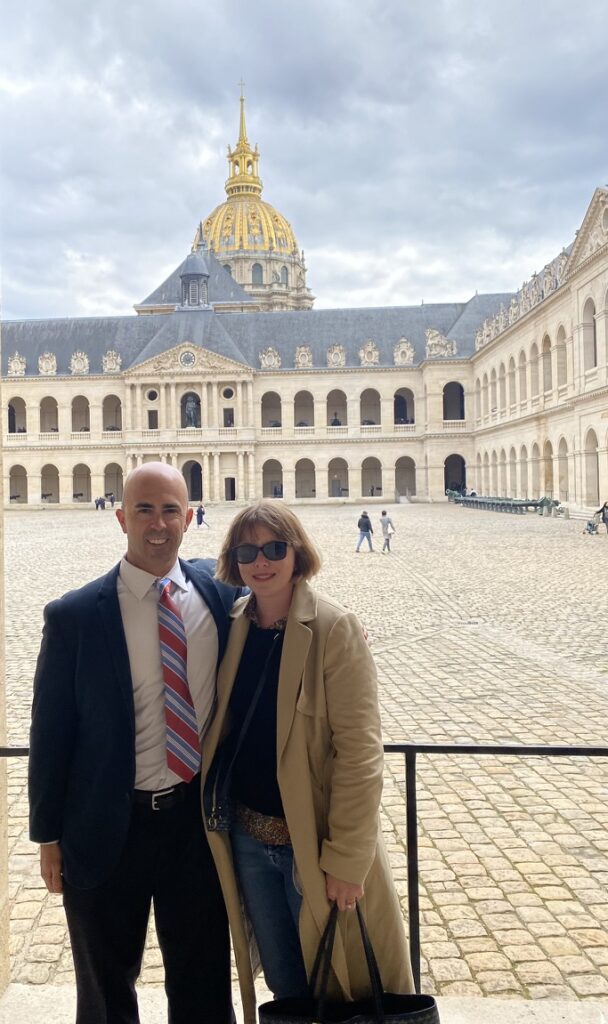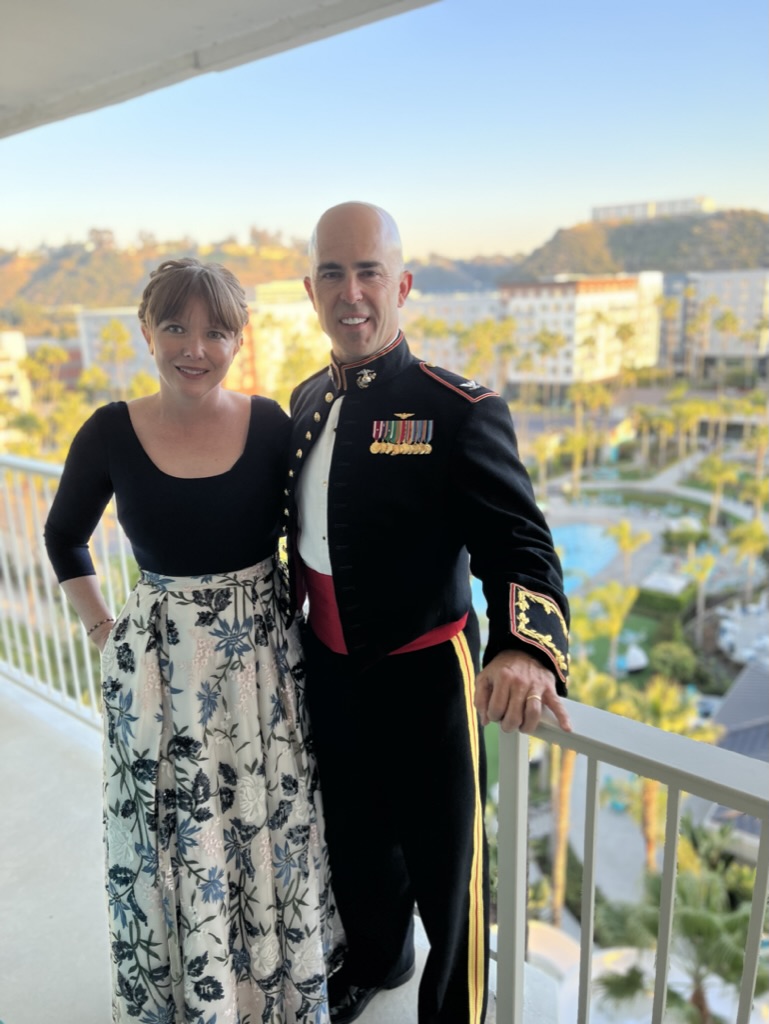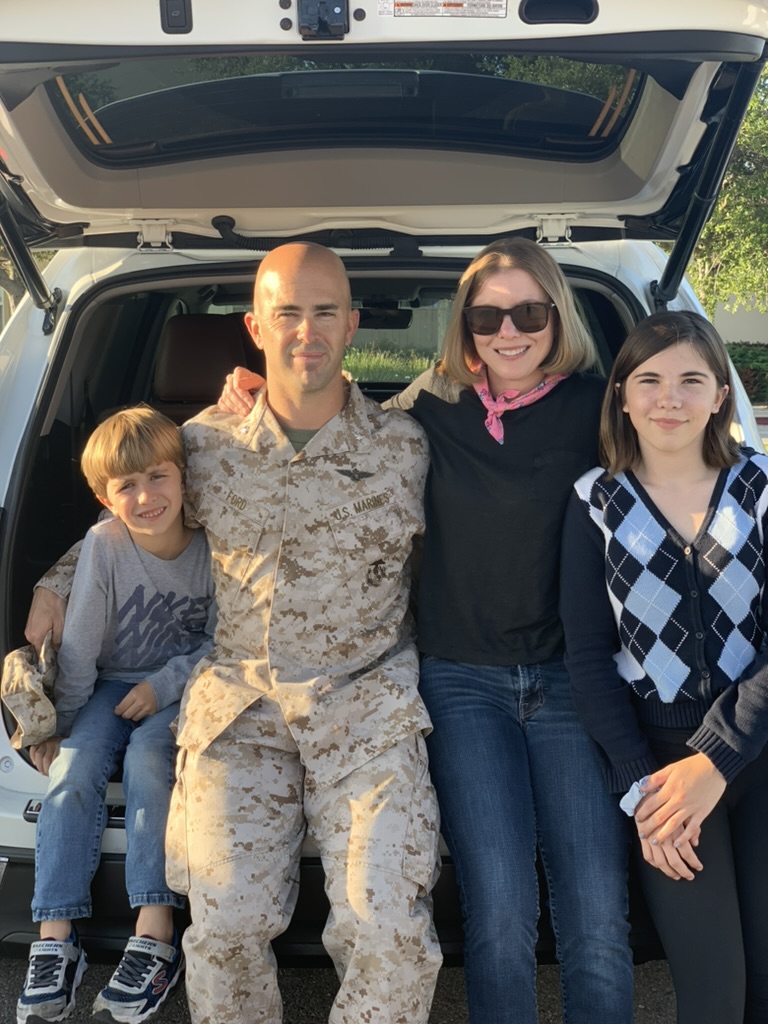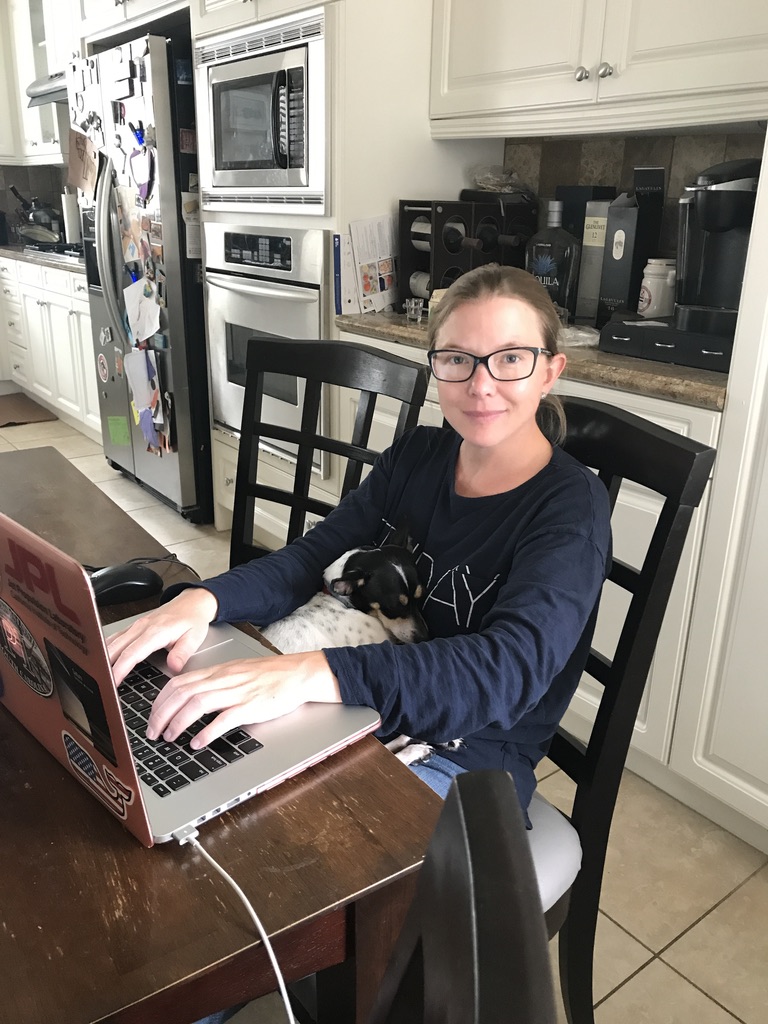Beth Ford ’02 made the most of her computer science minor at Mary Baldwin by pursuing passion, relishing experience, and “taking it one day at a time.”

Beth Ford (neé Chapman) ‘02, a third-generation Mary Baldwin student, didn’t get a chance to major in computer science. She had always liked computers and knew she wanted to study them, but with her plans to graduate in three years, double majoring didn’t make sense. Instead, she opted for a minor in computer science.
Her passion for technology helped her make the most of that minor, though.
“I remember when my dad got a computer, after he went to one of those computer shows you’d see on TV,” Ford reminisced. “My brother and I would play games on it and everything, but then we got competitive about who could do more with the computer. That was the start for me – I’ve been into computers ever since.”
Though she majored in political science, Ford started at Mary Baldwin in 1998 and benefitted from the tutelage of an executive-on-loan from IBM. She interned with the City of Virginia Beach as a database assistant, which gave her experience in political science but, more importantly, database administration.
Ford and her husband, a Marine Corps pilot studying at Virginia Military Institute (VMI), moved to California in March of 2002, after her husband graduated from flight school. In San Diego, she would find her first job as a junior database administrator (DBA).



She was hired at the Genomics Institute of the Novartis Research Foundation (GNF) as a junior DBA. The hiring process was competitive, and the company’s decision came down to a test between Ford and another candidate.
“We each had to write a paper on ‘how to write a peanut butter sandwich,’” Ford recalled. “The other candidate turned in a post-it note, and I turned in five pages with diagrams and details explaining how far you need to rotate your hand, the minutiae, everything. Ultimately, this was a test in documentation. Which is a really important part of database management – if you don’t document everything for continuity, the person who fills your role after you leave will have a mountain of information to decode and figure out.”
At the genomics institute, Ford had some extraordinary experiences. She was working at a laboratory full of some of the brightest minds in pharmaceutical research, she was learning from an incredibly skilled DBA whose tutelage would serve her for the rest of her career, and she even had a chance to meet Watson and Crick – the duo who discovered the double helix structure of DNA.
After some time at GNF, Ford started to look for a new job. Things were difficult at this stage – she was expecting a child, her husband was serving one of many tours in the Middle East and involved in the Battle of Fallujah, and she was living on her own in California. Still, she needed a change.
One friend suggested trying Craigslist. “It was worth a shot, I guess,” Ford thought at the time. She submitted an application to an anonymous job listing for a DBA in the San Diego area and wasn’t sure if she would hear anything back. A few days later, she got a call:
“How would you like to work at Playstation?”

Ford was worried that her pregnancy and deployed husband might make Playstation second-guess hiring her, but they took it in stride, and a new chapter in Ford’s life began.
“I worked at Playstation for the launch of the Playstation 3 – one of the highest-selling systems of all time – as well as the launch of the Playstation Network, which really brought online video games into the modern world. The Playstation Network opened up so much for online gaming – it let you see your friends online, join them in games, and communicate with them with text and voice.”
As a database administrator, Ford’s job was to ensure these systems ran smoothly.
“The day it went live was pretty cool,” Ford recalls. “Imagine, I’m playing video games with two other screens up, one with my computer monitoring the databases and the cluster performance as I’m gaming on another. This was on my lunch break to be clear! But of course there were a couple times you had to quit playing to deal with the database. That first day was a huge success, but there were also times that things didn’t go well. Where I turned into a firefighter and had to keep things running.”
Ford worked at Playstation for years, seeing this groundbreaking technology through generations of change and evolution. Her husband, now-Colonel Cliff Ford, is home a lot more. Ford herself continues to work in the video game industry as a DBA – putting out fires and keeping the lights on.
“You will always be challenged in life, whether in your family life or work. It is how you handle those challenges that define you. I got the experience and the foundation I needed from Mary Baldwin.”
“I’m just excited that MBU is bringing back IT,” Ford says, referencing a recent announcement from the Office of the President. “Dr. Tyson really brought Mary Baldwin into the 21st century. She really made Mary Baldwin a competitive university. I’m happy because Dr. Tyson saw that IT was the next big chapter, especially for women. And obviously that made such a big difference in my life.”
When asked if she had any advice for Mary Baldwin students, especially those considering a career in information technology, Ford had a clear answer: “Anyone can do what I do, you just have to keep at it. Perseverance and integrity are the two things you need the most.”
Connecting her college experience to her time as a high-profile DBA, Ford tells, “If everything is going to hell around you and someone makes a mistake, you’d much rather own up to that mistake and get to the bottom of it so you can solve it sooner. I always think of the MBU Honor Code, actually, because that really instilled in me that integrity and perseverance.
“You will always be challenged in life, whether in your family life or work. It is how you handle those challenges that define you. I got the experience and the foundation I needed from Mary Baldwin. I am grateful for the time I spent there, my professors, and the friends I met along the way. Mary Baldwin created an environment where I could speak comfortably (huge for a shy girl like me) and gave me the courage to take initiative.”
An institution as old as Mary Baldwin has lots of history – from under-appreciated alumni success stories to tales of buildings old and new and programs or traditions of the past – some of it is bound to be lost.
There’s plenty of lost MBU history to uncover, share, and celebrate. And there are even more incredible stories of students for whom that history still holds a big place in their hearts.
If you have a tip for hidden MBU history – something buried, lost, or simply forgotten – reach out to the Office of Integrated Communications at communicate@marybaldwin.edu.